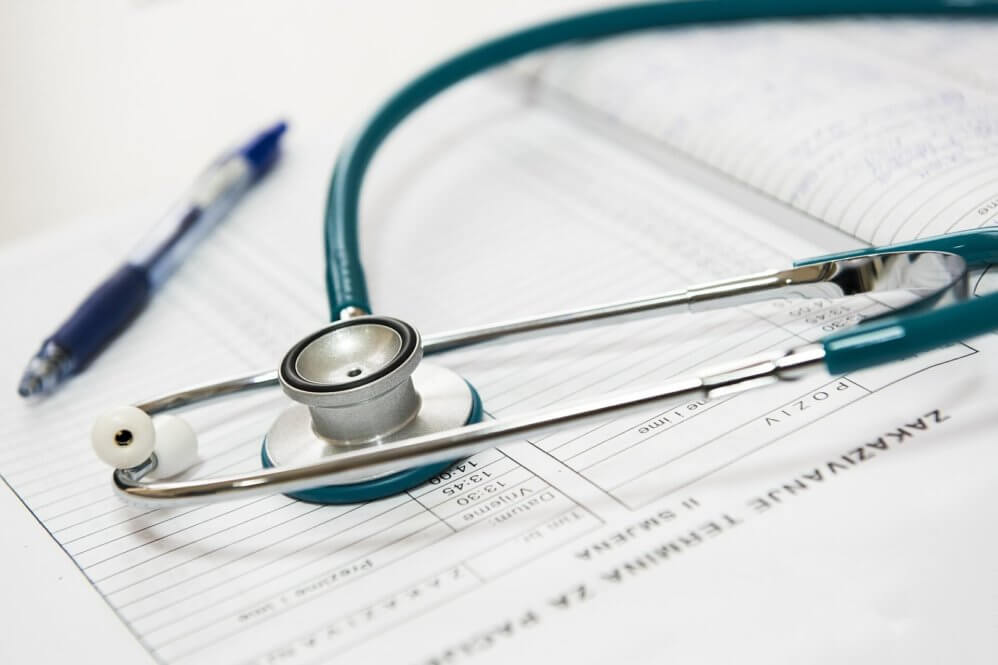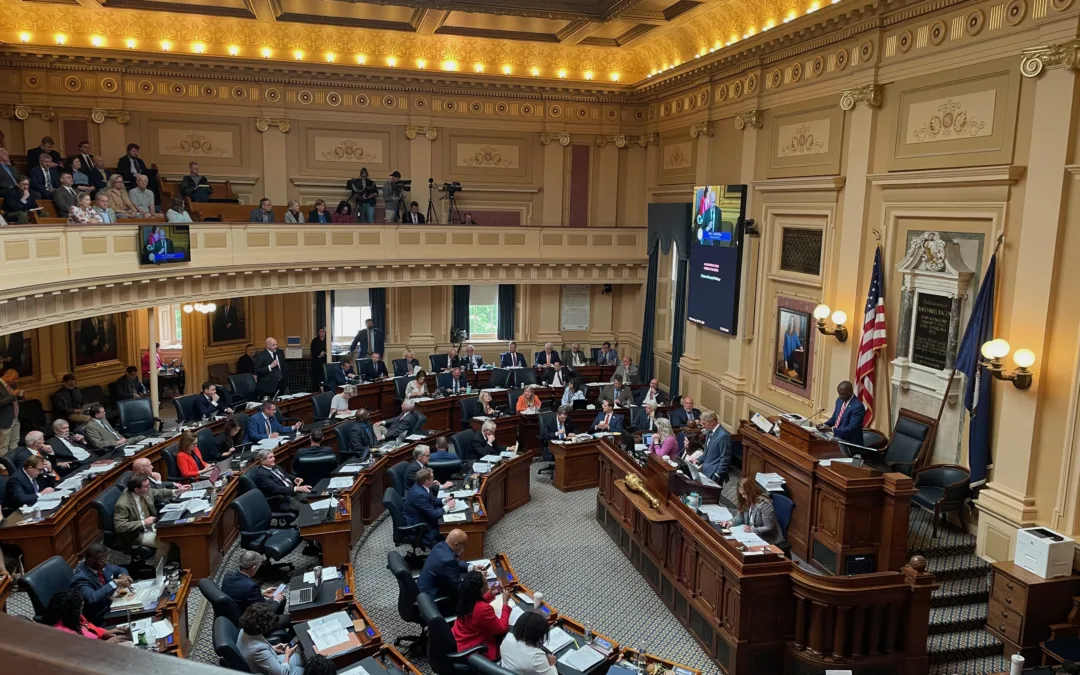
The state received nearly $80 million in American Rescue Plan funds for healthcare centers.
WASHINGTON, D.C. – In March, Senators Mark Warner and Tim Kaine announced that Virginia will receive $79.9 million for healthcare. Those dollars will come in the form of federal funding from the American Rescue Plan.
That money won’t go just anywhere. There’s a specific plan for every dollar, split across 26 community health centers in the Commonwealth.
The Health Resources and Services Administration will award the funds this month, made possible through the American Rescue Plan.
“For the past year, our community health centers have been on the front lines of providing care to our most vulnerable communities during the COVID-19 crisis,” Warner and Kaine said in a joint statement. “Thanks to the congressional passage and eventual signing of the American Rescue Plan, we are now able to provide these critical federal dollars so that our community health centers can continue to provide lifesaving care to the folks who need it the most.”
Once health centers receive the funds, they spend the dollars as they best see fit to help their communities. However, it’s not a free-for-all. There are select uses for the dollars the centers receive.
What Do Health Centers Do?
HRSA health centers are “community-based” and “patient-directed” organizations, said Scott Kodish. He works in the group’s communications office. The centers deliver affordable, accessible, quality and cost-effective primary health care to nearly 30 million patients each year. Their patients are people who can’t afford to go to the doctor. They’re uninsured or underinsured, with some paying out of pocket or considered low-income.
Nationwide, nearly 1,400 HRSA-funded health center grantees operate approximately 13,000 sites. They provide primary and preventive care on a sliding fee scale.
Over 91% of health center patients are individuals or families living at or below 200% of the Federal Poverty Guidelines. Close to 63% of patients served are racial or ethnic minorities.
The centers also offer a wide range of services.
“Health centers advance a model of coordinated, comprehensive and patient-centered primary health care, integrating a wide range of medical, dental, mental health, substance use disorder and patient services,” Kodish said.
Throughout the pandemic, HRSA health clinics served individuals experiencing homelessness, public housing residents, migrant and seasonal agricultural workers and patients with limited English proficiency. In addition to low income and minority patients, the clinics also served those in rural and frontier areas, operated Tribal and Urban Indian Health Programs and utilized mobile vans to deliver services.
The latest round of funding will help 520 HRSA-supported health centers. The dollars will help clinics expand access to COVID-19 vaccinations for underserved communities and vulnerable populations across the country. There are 26 such sites in Virginia.
“American Rescue Plan funds will support health centers in their continued effort to responding to and mitigating the spread of COVID-19, and enhancing health care services and infrastructure in medically underserved communities across the country,” Kodish said.
Funding From The American Rescue Plan
Health centers have specific ways they can utilize the American Rescue Plan funds. The two main goals include responding to and mitigating the spread of COVID-19 and enhancing health care services and infrastructure.
Improvements made with ARP funds will help health centers to continue meeting the needs of their patient population through the pandemic and beyond. There are two main ways they can do that.
First, health centers may provide equitable access to COVID-19 vaccination, testing and treatment, specifically through expanding access to mobile units. Second, they may fund minor alterations or renovations to support facility modernization and improvements.
“This award provides flexibility in how health centers can use the funding as COVID-19 circumstances and related community, patient and organizational needs evolve,” Kodish said. “Health centers can use funding to support a range of activities: address equitable access to COVID-19 vaccination, testing and treatment, other current and anticipated COVID-19 and primary health care needs in the service area and population and social determinants of health that may impact access to care, contribute to poor health outcomes and exacerbate health disparities.”
Malcolm Perdue, CEO of the St. Charles Health Council Inc. in Jonesville, said they hadn’t finalized the exact use for their dollars yet. However, the council will consider multiple options for the $3,021,125.
“It’ll help us build out our immunization structure and stuff like that,” Perdue said. “We’ll be doing ongoing testing and vaccinating for some time to come. There’s some resources in there for some infrastructure stuff. So if we need negative pressure rooms or more equipment to be able to do it, it’s there. There’s some support for maintaining staff.”
Putting a Plan in Place
Johnson Health Center in Lynchburg received $4,305,625 from the American Rescue Plan.
“It’s a good bit of money and there’s going to have to be some planning around it, which is what we’ve started to do,” said Gary Campbell, CEO of Johnson Health Center.
The health center spoke with a consultant to determine the best specific uses for the funds. Together, they came up with a plan centered around helping the community.
“What we’re looking to do, clearly we’ll want to improve the access to our vaccines and COVID-related duties,” Campbell said. “But it also affords us the ability to get into some of the recovery phases and look at things where we can improve and expand our access to care.”
Specifically, the center plans to look at infrastructure advancements including technology, workflows with care teams, training and development.
“We’re going to be able to do some things that really, with COVID and just with the business of a practice, haven’t had a chance to dive deep into in the last few years,” Campbell said.
Further utilizing the funds, Campbell hopes to ramp up vaccine rollout and provide care for all patients – especially the underserved and those disproportionately impacted by the virus – with a mobile medical unit.
“What we’re looking at is really optimizing our utilization of that unit that will include access to the vaccine, COVID testing and also taking care to the patients, like working with school systems and being able to do school physicals and potentially some immunizations off of the mobile med unit,” Campbell said.
The CEO expressed excitement over assessing how the practice delivers care. He hopes to revolutionize the experience for both the patients and the staff.
“This is an opportunity for our moon shot,” Campbell said.
JOIN THE CONVERSATION: Sign Up For Dogwood’s Newsletter
Creating a Community Resource
Central Virginia Health Services, Inc. in New Canton also received federal dollars – $8,864,625 of them to be exact. CEO Paula Tomko discussed her team’s plan for the funds.
“It’s really going to help us to be a community resource for COVID vaccination and testing as we work out the next period,” Tomko said. “So we’re really interested in being a reliable source to help support the communities that we serve, which are often the most vulnerable.”
Specifically, she hoped the health center would become a hub for those who could not make it to the mass vaccine clinics due to transportation or chronic health issues.
“We really want to be able to help those folks and keep it close to home and help our communities,” Tomko said. “This, for example, will help us hire staff that will be able to focus solely on vaccination. They’ll be able to go out in the community, while we’ll still be able to provide our primary care services.”
The dollars will also go toward hiring additional staff for in-office services. Further investments include technology and equipment to provide as many services as possible, as safely as possible.
“It’s been an interesting experience to work through this pandemic. I’m very proud of the staff that we have that has worked,” Tomko said. “We have continued. We have not closed.”
From curbside triage to seeing patients outdoors, the clinic overcame COVID-related obstacles to provide the best service possible to the community. Now, the federal funds will help them do even more.
“We just want to do our best by our community,” Tomko said. “That’s our job – to keep them healthy.”
Amie Knowles reports for Dogwood. You can reach her at [email protected]
Politics

Youngkin, Democrats to start over on budget talks
The Republican governor stood with Democratic leaders in the General Assembly on Wednesday in a bid to ease tensions over their budget debate....

VIDEO: Domestic abuse victims speak out against the gun law bills Gov. Glenn Youngkin vetoed
Senate Bill 47 and House Bill 46 aim to close the loophole that allows offenders to transfer their firearms to someone else instead of relinquishing...
Local News

Virginia verses: Celebrating 5 poetic icons for National Poetry Month
There’s no shortage of great writers when it comes to our commonwealth. From the haunting verses of Edgar Allan Poe, who found solace in Richmond's...

Join the fun: Recapping Family Literacy Night’s storybook adventures
When’s the last time you read a book aloud with a loved one? If it’s difficult to answer that question, then maybe it’s time to dust off that TBR...





